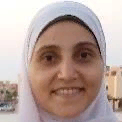International Journal of Image, Graphics and Signal Processing (IJIGSP)
IJIGSP Vol. 11, No. 10, 8 Oct. 2019
Cover page and Table of Contents: PDF (size: 716KB)
Facial Expressions Recognition in Thermal Images based on Deep Learning Techniques
Full Text (PDF, 716KB), PP.1-7
Views: 0 Downloads: 0
Author(s)
Index Terms
Thermal Images, Neural Network, Convolutional Neural Network, Facial Expression Recognition, Autoencoders.
Abstract
Facial expressions are undoubtedly the best way to express human attitude which is crucial in social communications. This paper gives attention for exploring the human sentimental state in thermal images through Facial Expression Recognition (FER) by utilizing Convolutional Neural Network (CNN). Most traditional approaches largely depend on feature extraction and classification methods with a big pre-processing level but CNN as a type of deep learning methods, can automatically learn and distinguish influential features from the raw data of images through its own multiple layers. Obtained experimental results over the IRIS database show that the use of CNN architecture has a 96.7% recognition rate which is high compared with Neural Networks (NN), Autoencoder (AE) and other traditional recognition methods as Local Standard Deviation (LSD), Principle Component Analysis (PCA) and K-Nearest Neighbor (KNN).
Cite This Paper
Yomna M. Elbarawy, Neveen I. Ghali, Rania Salah El-Sayed, " Facial Expressions Recognition in Thermal Images based on Deep Learning Techniques", International Journal of Image, Graphics and Signal Processing(IJIGSP), Vol.11, No.10, pp. 1-7, 2019. DOI: 10.5815/ijigsp.2019.10.01
Reference
[1]S. Naz, Sh. Ziauddin and A. R. Shahid, "Driver Fatigue Detection using Mean Intensity, SVM and SIFT", International Journal of Interactive Multimedia and Artificial Intelligence, In press, pp. 1 - 8, 2017.
[2]F. Z. Salmam, A. Madani and M. Kissi, "Emotion Recognition from Facial Expression Based on Fiducial Points Detection and Using Neural Network", International Journal of Electrical and Computer Engineering (IJECE), Vol. 8(1), pp. 52-59, 2018.
[3]Y. Wang, X. Yang and J. Zou, "Research of Emotion Recognition Based on Speech and Facial Expression", TELKOMNIKA (Telecommunication, Computing, Electronics and Control), Vol. 11(1), pp. 83-90, 2013.
[4]Y. Yoshitomi, N. Miyawaki, S. Tomita and S. Kimura, "Facial expression recognition using thermal image processing and neural network", 6th IEEE International Workshop on Robot and Human Communication, Sendai, Japan, pp. 380- 385, 1997.
[5]Sh. Wang, M. He, Z. Gao, Sh. He and Q. Ji, "Emotion recognition from thermal infrared images using deep Boltzmann machine", Front. Comput. Sci., Vol. 8(4), pp. 609-618, 2014.
[6]Y. Nakanishi, Y. Yoshitomi, T. Asada et al., "Facial expression recognition using thermal image processing and efficient preparation of training-data", Journal of Robotics, Networking and Artificial Life, Vol. 2(2), pp. 79-84, 2015.
[7]Y. Lecun, "Generalization and Network Design Strategies", Pfeifer, Schreter, Fogelman and Steels (eds)’Connectionism in perspective’, Elsevier, 1989.
[8]A. Krizhevsky, I. Sutskever, and G. E. Hinton, "ImageNet classification with deep convolutional neural networks". Advances in Neural Information Processing Systems (NIPS), pp. 1106-1114, 2012.
[9]X. Liao and J. Yu, "Robust stability for interval Hopfield neural networks with time delay", IEEE Transactions on Neural Networks, Vol. 9(5), pp. 1042–1045, 1998.
[10]J. J. Hopfield, "Neurons with graded response have collective computational properties like these of two-state neurons", Proceedings of the National Academy of Sciences, USA, Vol. 81(10), pp. 3088–3092, 1984.
[11]R. Amardeep and Dr. K T. Swamy, "Training Feedforward Neural Network with Backpropogation Algorithm", International Journal of Engineering and Computer Science, Vol. 6(1), pp. 19860-19866, 2017.
[12]M. F. Møller, "A scaled conjugate gradient algorithm for fast supervised learning", Neural Networks, Vol. 6(4), pp. 525-533, 1993.
[13]G. E. Nasr, E.A. Badr and C. Joun, "Cross Entropy Error Function in Neural Networks: Forecasting Gasoline Demand", Proceedings of the Fifteenth International Florida Artificial Intelligence Research Society Conference, Florida, USA, pp. 381-384, 2002.
[14]University of Tennessee: IRIS thermal-visible face database: http://vcipl-okstate.org/pbvs/bench/, last accessed Jul. 2018.
[15]P. Viola and M. Jones, "Rapid object detection using a boosted cascade of simple features", Proceedings of the 2001 IEEE Computer Society Conference on Computer Vision and Pattern Recognition, Vol. 1, Kauai, HI, USA, 2001.
[16]U. Schmid, J. Günther and K. Diepold, "Stacked Denoising and Stacked Convolutional Autoencoders. An Evaluation of Transformation Robustness for Spatial Data Representations", Technical Report, Technische Universität München, Munich, Germany, 2017.
[17]B. Leng, S. Guo, X. Zhang, and Z. Xiong, "3d object retrievalwith stacked local convolutional Autoencoder", Signal Processing, Vol. 112, pp. 119–128, 2015.
[18]K. Shan, J. Guo, W. You, D. Lu and R. Bie, "Automatic Facial Expression Recognition Based on a Deep Convolutional-Neural-Network Structure", Proceeding of IEEE 15th International Conference on Software Engineering Research, Management and Applications (SERA), London, UK, pp. 123-128, 2017.
[19]Y. Yang, J. Yang, N. Xu and W. Han, "Learning 3D-FilterMap for Deep Convolutional Neural Networks", Proceeding of the 31st Conference on Neural Information Processing Systems (NIPS 2017), Long Beach, CA, USA, 2017.
[20]A. Ruiz-Garcia, M. Elshaw, A. Altahhan and V. Palade, "Stacked Deep Convolutional Auto-Encoders for Emotion Recognition from Facial Expressions", International Joint Conference on Neural Networks (IJCNN), Anchorage, Alaska, pp. 1586-1593, 2017.
[21]Y. M. Elbarawy, R. S. El-sayed and N. I. Ghali, "Local Entropy and Standard Deviation for Facial Expressions Recognition in Thermal Imaging" Bulletin of Electrical Engineering and Informatics, Vol. 7(4), pp. 580-586, 2018.
